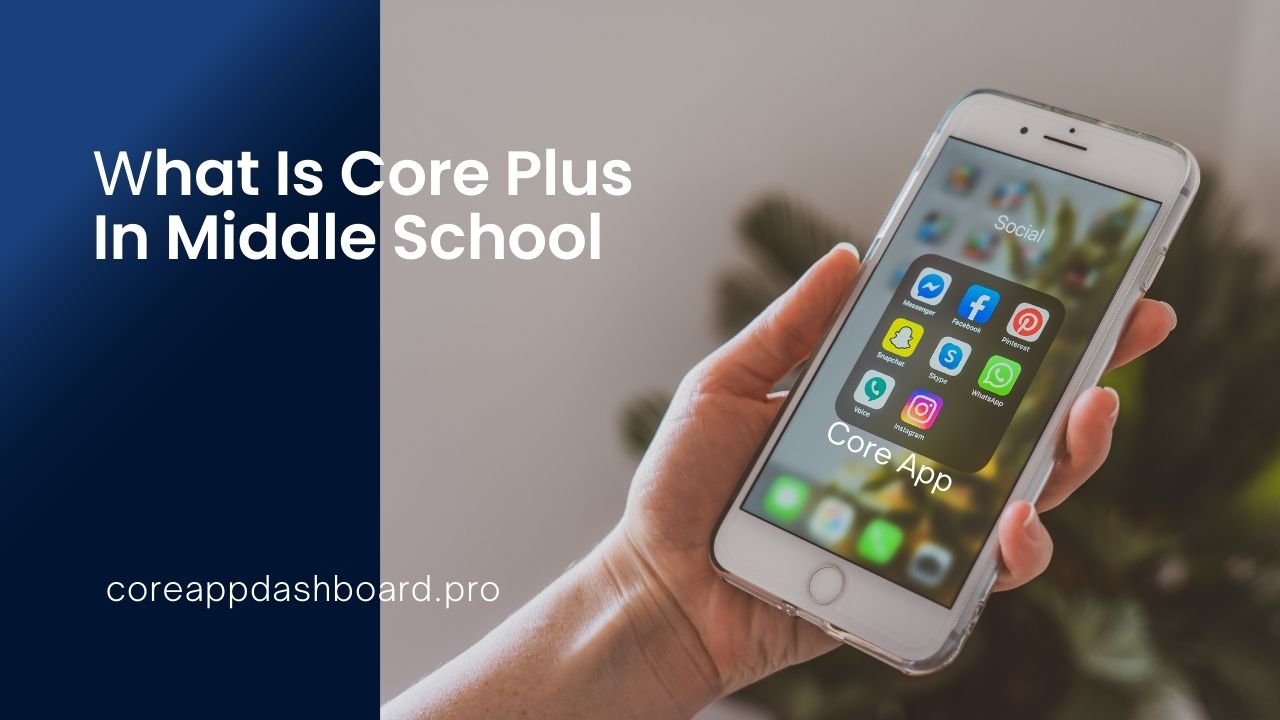Middle school is a pivotal time in a student’s educational journey, and educators are constantly exploring innovative ways to engage and challenge young learners. One approach that has gained traction in recent years is the concept of Core Plus Education. In this article, we will delve into the meaning and significance of Core Plus in middle school education.
Contents
I. Defining Core Plus Education
Core Plus education is an educational approach that goes beyond the traditional core curriculum to offer middle school students a more comprehensive and engaging learning experience. It is designed to provide a well-rounded education that not only focuses on academic subjects like math and language arts but also incorporates other essential components such as life skills, arts, and practical knowledge.
II. Key Features of Core Plus Education
2.1. Integration of Real-World Applications
One of the core features of Core Plus education is its emphasis on connecting classroom learning to real-world applications. This approach helps students see the relevance of what they are learning and how it can be applied in their lives beyond school. For example, a science lesson on climate change might lead to a project where students research local environmental issues and propose solutions.
2.2. Multidisciplinary Approach
Core Plus programs often take a multidisciplinary approach, encouraging students to explore connections between different subjects. For instance, a project on historical events might incorporate elements of language arts, social studies, and art. This interdisciplinary approach fosters a deeper understanding of the topic and helps students recognize the interconnectedness of knowledge.
2.3. Life Skills and Practical Knowledge
In addition to academic subjects, Core Plus education places importance on teaching life skills and practical knowledge. Students may learn financial literacy, problem-solving, communication skills, and even basic household skills. These skills are crucial for their personal development and future success.
2.4. Student-Centered Learning
Core Plus education is designed to be more student-centered. It allows students to have a say in their learning experiences, fostering a sense of ownership and responsibility for their education. This approach encourages students to explore their interests and passions, making learning more engaging and meaningful.
2.5. Hands-On Learning
Hands-on learning is a significant component of Core Plus education. Students engage in projects, experiments, and real-life experiences to better understand and retain knowledge. Whether it’s conducting a science experiment, building a model, or volunteering in the community, hands-on learning makes education come alive.
III. The Importance of Core Plus Education
3.1. Holistic Development
Core Plus education aims to nurture not only a student’s academic skills but also their personal and social development. This holistic approach helps students become well-rounded individuals, ready to face the challenges of the modern world. It teaches empathy, teamwork, and communication, in addition to academic knowledge.
3.2. Lifelong Learning
By connecting classroom learning to practical skills and real-world applications, Core Plus education instills a love for lifelong learning. Students are more likely to see the value of education beyond the classroom and continue to seek knowledge and self-improvement throughout their lives.
3.3. Preparation for the Future
The skills and knowledge gained through Core Plus education are invaluable in preparing students for the challenges of the future. In a rapidly changing world, adaptability, critical thinking, and problem-solving are essential skills. Core Plus education equips students with these skills, making them better prepared for college, careers, and life in general.
IV. Implementing Core Plus Education
4.1. Curriculum Development
To implement Core Plus education, schools must develop a well-rounded curriculum that integrates academic subjects, life skills, and hands-on learning experiences. Collaboration among educators is crucial in designing and delivering such a curriculum. This curriculum should also be flexible, allowing students to explore their interests and passions.
4.2. Teacher Training
Teachers play a pivotal role in Core Plus education, as they need to adapt their teaching methods to engage students in a more holistic and student-centered approach. Professional development and training are essential for educators to excel in this teaching model. They need to become facilitators of learning, guiding students through their educational journeys.
4.3. Resources and Facilities
Core Plus education may require additional resources and facilities to support hands-on and multidisciplinary learning. Schools need to invest in equipment, materials, and spaces that facilitate this type of education. This may include science labs, art studios, and outdoor learning areas.
V. Success Stories
To highlight the effectiveness of Core Plus education, here are two success stories:
5.1. Project-Based Learning
A middle school introduced a project-based learning program as part of their Core Plus curriculum. Students worked on projects related to sustainable energy, where they not only learned about renewable energy sources but also collaborated to design and build solar ovens. These projects not only improved academic performance but also developed critical thinking and public speaking skills.
5.2. Life Skills Workshops
Another school integrated life skills workshops into their Core Plus education. These workshops covered topics like budgeting, cooking, and home maintenance. Graduates of this program reported feeling more prepared for life beyond school and better equipped to handle everyday challenges. Many of them went on to pursue further education or vocational training, equipped with practical skills for independent living.
VI. Conclusion
Core Plus education in middle schools represents a dynamic shift in the way we approach education. It aims to prepare students not only academically but also socially and practically for their futures. By providing students with a more holistic and engaging learning experience, Core Plus education empowers them to become lifelong learners and well-rounded individuals who are ready to tackle the challenges of the 21st century.
The significance of Core Plus education lies in its ability to develop well-rounded individuals who are not only academically prepared but also equipped with the skills, knowledge, and attitudes needed to succeed in an ever-changing world. As we move forward in education, the implementation of Core Plus programs in middle schools may play a vital role in shaping the future leaders and problem solvers of our society.
